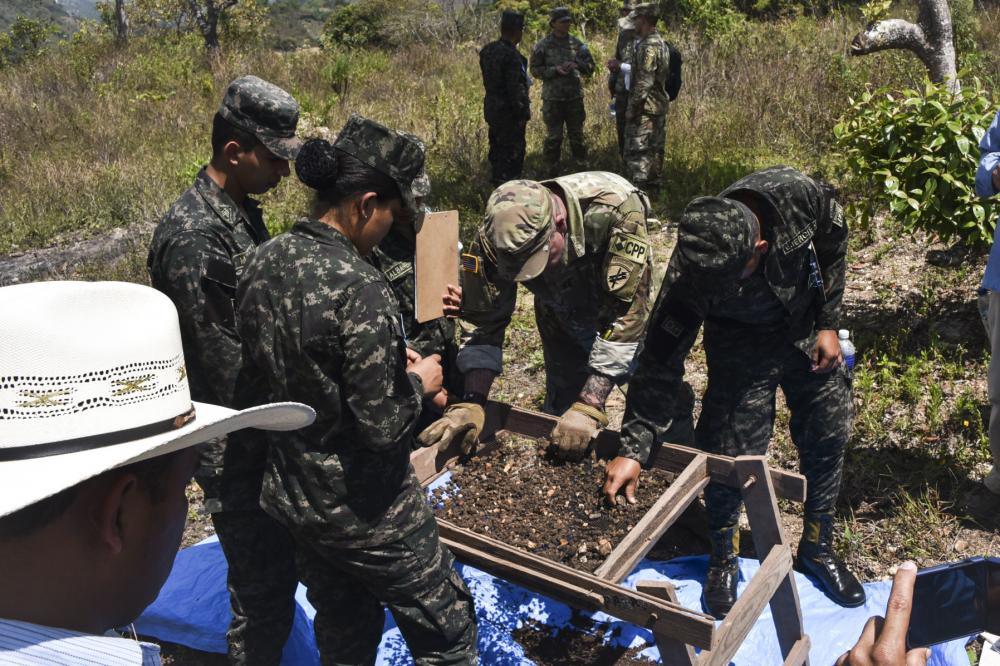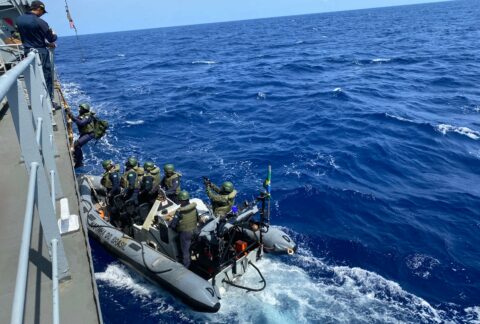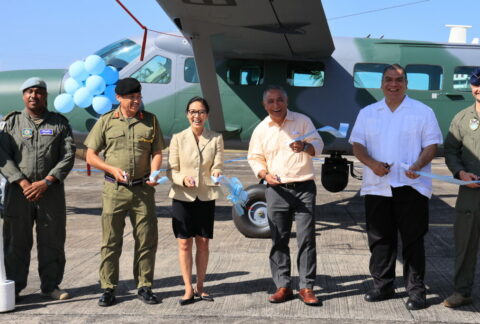Central America is vulnerable to earthquakes, hurricanes, tropical storms, and volcanic eruptions, making damage to historic sites a high-risk. As partners to this region, U.S. Southern Command engineers integrated environmental experts into a Joint Task Force Bravo- (JTF-Bravo) led event, March 7-11, supporting the Honduran Army’s 120th Infantry Brigade and the Institute of Anthropology and History in the second cultural heritage assessment in Honduras, to exchange information on best practices to mitigate damage when it comes to operating in a region that is so culturally rich.
“In August of last year [2021], we successfully conducted the first of these assessments with the 115th [Infantry Battalion] in Olancho and the soldiers suggested we do the following one in Copán since they recognize this as a site of importance, which we can all agree,” said U.S. Army Lieutenant Colonel Achim Biller, J9 director, JTF-Bravo.
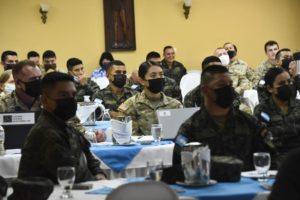
Copán Ruinas has been recognized as a world heritage site by UNESCO and is one of the most important sites of the Mayan civilization, with many kilometers of mounts that are yet to be discovered.
After the devastation left by hurricanes Eta and Iota, the Honduran Institute of Anthropology recognized the need to assess damages at cultural heritage sites, including Copán Ruinas.
JTF-Bravo provided engineers, planners, a fire emergency responder, and civil affairs personnel and were joined by Lieutenant Colonel Michael Delacruz and Captain William Welsh, Army Monuments officers from the U.S. Army Civil Affairs and Psychological Operations Command (USACAPOC); Dr. Laurie Rush, Fort Drum Cultural Resources manager; Samuel Franco, Blue Shield representative in Guatemala; and Honduran subject matter experts who all came together to partner with the 120th.
“We think it’s important to share our expertise with our Honduran partners. The 120th Brigade does a fantastic job at protecting these sites already but anything we can do to assist them is value added for us and them,” said U.S. Army Lieutenant Riley Kissinger, engineer with JTF-Bravo and officer in charge of the mission.
“What we have going on in the ruins of Copán in Honduras is an assessment on cultural heritage protection and we are exchanging ideas and knowledge in the hopes of establishing stronger relationships between our governments and respective militaries,” said Lt. Col. Delacruz. “Protecting cultural heritage is not only important to maintaining our identity with respect to where we grew up and what we call home, but also these resources are valuable to a worldwide audience, so it’s important that we cooperate with their protection because often times they can be abused.”
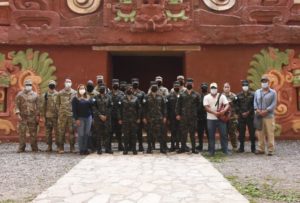
An overlap between security and cultural heritage is the foundation of the Hague Convention of 1954 and this is when organizations such as Blue Shield come to play. Though Honduras is not a combat zone, churches and landmarks have been looted and vandalized, museums have suffered fires, and archeological and Spanish colonial constructions can be found most everywhere.
The region is also susceptible to drug cartels and human trafficking operations that may result in migratory waves making their way to the Guatemalan border; situations that may lead to damage or looting in these sites.
Through this exchange, partner nation forces were taught the basic methodologies, tools, and strategies, from experts, on how to observe, identify, classify, and document items or artifacts of potential cultural value through classroom presentations and later on the field.
The assessment also provided tangible results with the assistance of Dr. Hayden Bassett and the Virginia Museum of Natural History’s Monitoring Lab. The exchange included the 120th’s soldiers providing data and coordinates through satellite radio and geospatial technology that Bassett would collect to create a map. This map will assist in predicting where the sites could be impacted within ranges of five years, what the most recognizable damages were and where they were located to prepare and assess potential mitigation strategies.
“This is new knowledge that I really feel I am taking with me. It’s valuable for me and for my soldiers who oversee this area. This exchange is important and as a personal experience it’s been great to work with the U.S. officers and enlisted personnel,” said Honduran Army Lieutenant Kevin Calix, officer in charge of the 120th’s participants.

